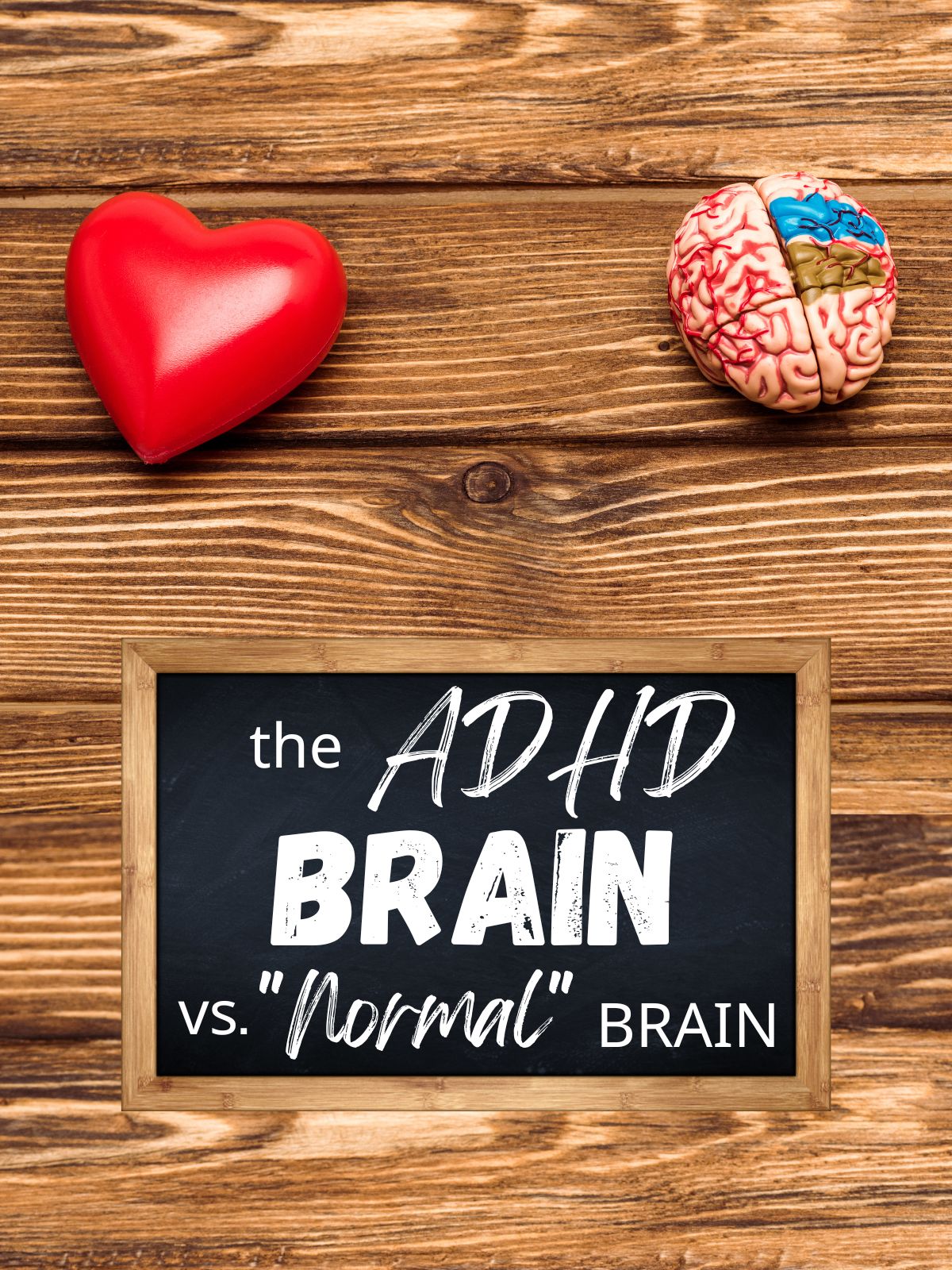The content on this website is for informational purposes only and is not meant to replace professional or medical advice. See our full disclaimer.
ADHD is a neurological condition. That means that it impacts the brain. Since the brain controls pretty much every other part of our bodies and minds, a difference there is going to make a difference to everything else.
ADHD brains are not better or worse than other brains, they are simply different. When we talk about “normal” brains, we mean brains that work in a similar way to those of the majority of the rest of the population.
It is perhaps more helpful to compare ADHD brains with “typical” brains, hence the term “neurotypical”, which is used to describe people who are not neurodivergent. Neurodivergent conditions include ADHD, autism, dyslexia and others.
We should also remember that whenever we are competing with others, it is areas where we are different that give us the edge. If you are in a running race, you want your body to be different in terms of how fast you can run.
The same can apply to brains – when used well, being different can be a strength, not a problem.
So how do ADHD brains differ from neurotypical brains?
Structure and Development
Let’s start with the physical. Some parts of ADHD brains may be different in size from typical brains and may develop at a different rate in ADHD children.
Now it is important to remember that all our brains develop in slightly different ways and rates – girls tend to reach emotional maturity ahead of boys, for example.
It is also important to remember that brain size does not determine intelligence. It really is how you use your brain, not how big it is, that makes the difference!
What is interesting is that ADHD brains tend to mature more slowly in areas that deal with parts of life that ADHD people tend to find more challenging. For example, the amygdala and hippocampus, which impact memory, motivation and control of emotions, and the frontal cortex, which deals with planning and attention.
However, the motor cortex, which relates to movement, may develop faster in ADHD brains, and this could be related to the ADHD drive to fidget and move regularly!
There is a lot going on, and much of it is very complex to understand, so here is the bottom line: ADHD brains have been shown to be physically different from typical brains in lots of ways.
We do not criticise short people for not being able to reach the top shelf, as their height is just part of the natural diversity of humanity. In the same way, those of us with ADHD are physically different in our brains, but not better or worse than others.
Function
Given that ADHD brains are constructed a bit differently, it is no surprise that they may work in different ways as well. These can include less blood flowing to certain areas, which prevents them from functioning at full power.
In addition, there can be reduced connections between some parts of the brain, such as between the visual processing area and the frontal cortex, which would explain ADHD people reacting differently to things that we see.
On the other hand, research is also starting to show ADHD brains having more connections than typical brains between other areas. So it really is true that our brains are wired differently!
Another difference is in how our brains react to and organise a complex task. In typical brains, when you need to focus on something tricky, a part of the brain known as the default attention network effectively backs off, leaving your brain free to focus on the task at hand.
The default attention network is the way that your brain manages everyday life, keeping aware of what is happening around you in case of danger and so on. In ADHD brains, this may not fade into the background when you need to focus, so you are much more likely to be distracted by things around you and the thoughts that they may trigger.
ADHD brains may also become hyperactive in some areas and much less active in others, rather than balancing the needs of a task across different brain areas more evenly. This too can account for some of the differences in how ADHD impact our lives.
Chemistry
Where neurons in your brain meet, they pass messages over the gap between them using chemicals called neurotransmitters. Dopamine is one of the key neurotransmitters, and ADHD brains are often short of it or do not use it well.
The pathways that dopamine follows in key areas of the brain may be disrupted in ADHD brains, impacting how they work, in the same way that a blocked road disrupts traffic flow in a busy town.
Dopamine also plays a part in making us feel happy, so a deficiency can impact mood as well as brain function.
Different but not deficient
In short, ADHD brains are different in how they are built, how they work and how they pass messages to different parts. It is no wonder that ADHD people see the world differently!
But remember, different is not automatically bad or a problem. Difference can be and often is a strength. Your ADHD brain with its unique perspective may find it much easier to carry out some tasks that most others find difficult.
ADHD brains are often hugely creative, and their constant interest in everything they encounter produces a never-ending stream of ideas.
The key is to know yourself, including your strengths and weaknesses. If you cannot run fast, it is pointless to kid yourself that you will run in the Olympics. That does not mean that you cannot enjoy running for pleasure, but we must be realistic about our own abilities.
Find the things that your brain does well and focus on those. Because you are good at them, they may well be things that you enjoy doing as well.
Differences are reasons to celebrate and explore possibilities. There is nothing wrong with being ADHD, you just need a different perspective!






We'd love to hear from you